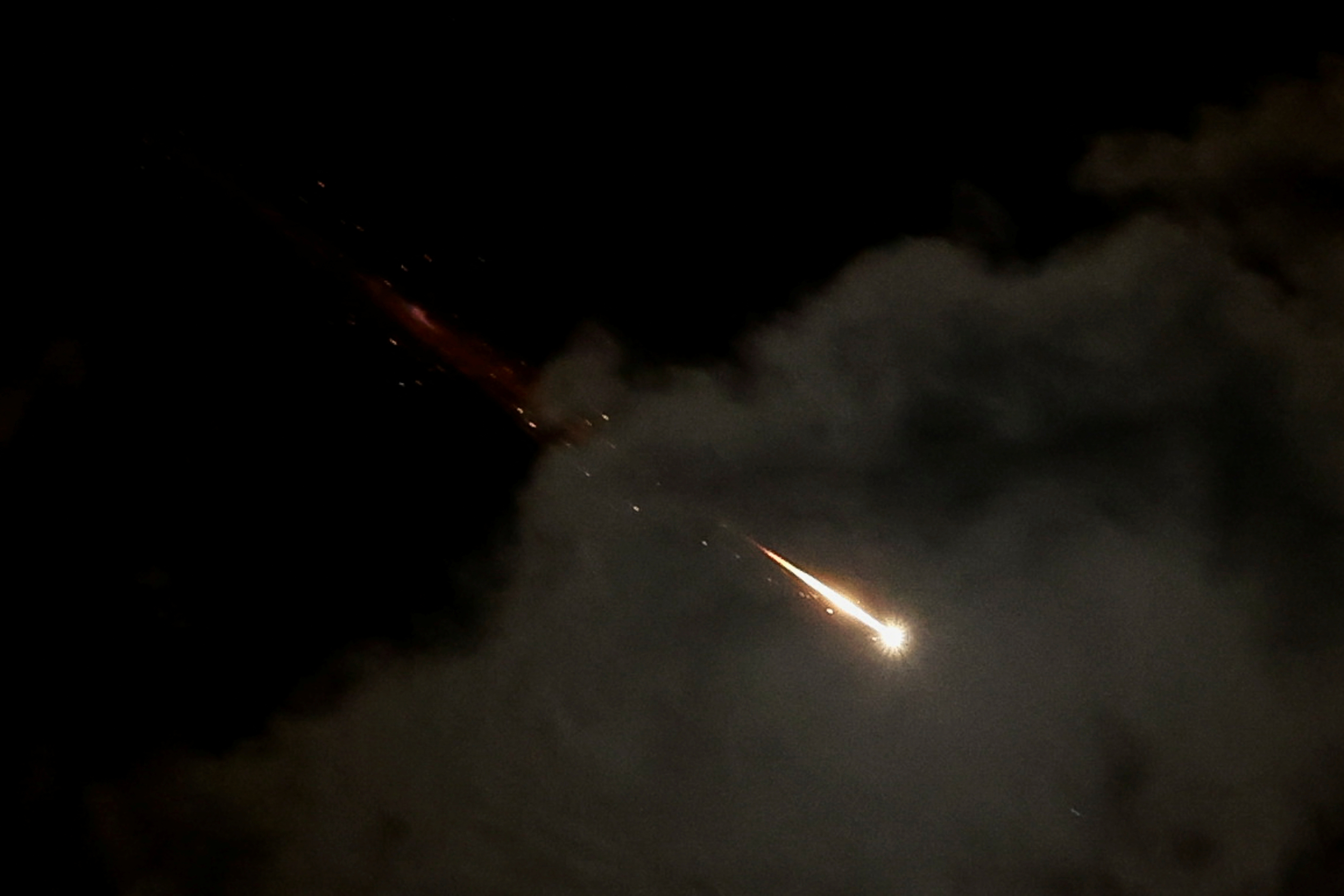Missiles were visible from Cyprus
International flights with destinations in the Middle East were diverted to Cyprus on Tuesday evening as Iran launched a series of missile strikes on the Israeli Mediterranean city of Tel Aviv.
British Airways’ flight from London Heathrow to Dubai, Royal Jordanian’s flight from Paris Charles de Gaulle to Amman, and Israeli airline El Al’s flight from Rhodes to Tel Aviv itself all landed at Larnaca on Tuesday evening after Israel closed its airspace amid the missile strikes, and both Jordan and Iraq swiftly followed suit.
Meanwhile, concerns were raised by members of the public in Cyprus, with a number of missiles having been visible from the island’s coastal towns and cities.
Newspaper Phileleftheros reported that some people had even called the police asking what was going on in the sky and if they were in danger.
With Cyprus’ geographical neighbourhood once again the scene of violence, government spokesman Konstantinos Letymbiotis announced that President Nikos Christodoulides had called an extraordinary national council meeting for Wednesday morning to discuss Tuesday night’s events.
The meeting will take place at 11am at the Presidential palace.
However, despite the deteriorating political situation, the Cyprus News Agency reported on Tuesday night that Cyprus is yet to receive any official request to activate the ‘Estia’ plan and facilitate the transfer of European Union and third country nationals from Israel or Lebanon to their country of origin via Cyprus.
Foreign ministry spokesman Theodoros Gotsis had told the Cyprus Mail on Monday Cyprus is at its “maximum state of readiness” for a potential evacuation.
The Cypriot government Is moving faster on the matter than its international counterparts, however, with Greek Defence Minister Nikos Dendias having announced on Tuesday night that his government is to provide a Lockheed C-130 transport aircraft to facilitate the evacuation of Cypriot citizens from Lebanon.
The announcement of the aircraft came following a call with his Cypriot counterpart Vasilis Palmas, with the Cyprus News Agency estimating there are around 1,200 Cypriot citizens living in Lebanon at present.
Cyprus’ readiness to enact the ‘Estia plan’ comes after the United Kingdom sent sent 700 troops, border force agents, and other officials to Cyprus to help with contingency planning for a range of scenarios in Lebanon.
The country’s foreign office had said the teams “joined the already significant UK diplomatic and military footprint in the region”, with the country also reopening a scheme for its citizens called “Register Your Presence”, which it says will support its citizens in Lebanon and “provide vital updates”.
Iran’s latest volley of missiles fired at Israel comes as a retaliation for Israel’s killing of militant group Hezbollah’s leader Sayyed Hassan Nasrallah, after the country had already wiped out most of its leadership structure.
Israeli army radio said nearly 200 missiles were launched from Iran on Tuesday night, while Iran’s revolutionary guard declared that if Israel retaliated again, their response would be “more crushing and ruinous”.
Later on Tuesday night, Israel’s military sounded the all-clear and said Israelis were free to leave their bomb shelters, while military spokesman Daniel Hagari said the military was not aware of any injuries resulting from the Iranian missile attacks.
Israel had invaded southern Lebanon on Tuesday morning, having struck central Beirut with a missile for the first time since 2006 a day earlier.
Meanwhile, the United Nations reported that 100,000 people have fled Lebanon for Syria since the latest escalation in the conflict, while the country’s Prime Minister Najib Makati said Israel’s continuing air strikes may have already forced a million people to across Lebanon to leave their homes.
Cyprus has been on standby for any activation of the ‘Estia’ plan throughout the summer, with deputy government spokesman Yiannis Antoniou saying the island was ready in July.
“If help is needed, we will provide it. We have the know-how and the infrastructure to do so,” he added.
The Estia plan has been activated before, most recently in October last year following Hamas’ attack on Israel, as EU and third country nationals fled the country after the attack.
The plan entails Cyprus acting as a hub for third country nationals fleeing a neighbouring country before being repatriated to their own countries of origin.
When Sudan was evacuated in April last year, a total of 2,611 people arrived in Cyprus, while over 1,000 are known to have arrived from Israel in October.







Click here to change your cookie preferences